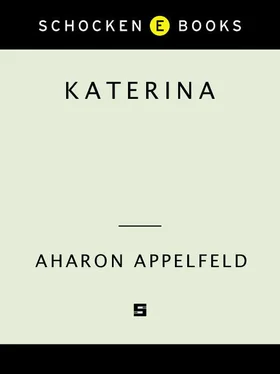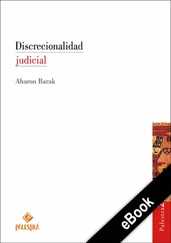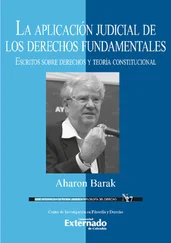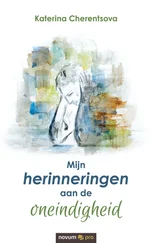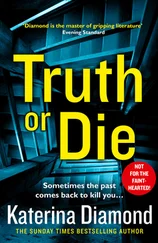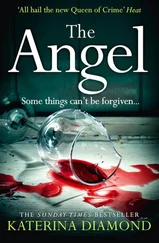In the midst of this, summer ended. The fields turned brown and low clouds descended from above and spread over the fields. Suddenly, I saw the Jews of the autumn. The autumn Jews were lonely people, with long suitcases in their hands. They used to make their way by foot. The autumn Jews were mostly tall and you could find them leaning on a tree, next to a well, and sometimes at the edge of the village, sitting and observing. Children were afraid of them for some reason, and the adults would drive them away, the way you drive off an unfamiliar horse.
I spent most of the day in the ruin. Sometimes I felt that my distant years were close by, and I heard my mother’s voice: “Where are you? Why don’t you take the cattle out to pasture? It’s late.” Sometimes I heard nothing, I just saw: my mother in the dairy and my father next to the fence, swigging from the bottle. A cold and dissolute smile spread on his face, and not far from him were his two bastards, the way they had appeared once, cramped together on a little wagon, convicts on their way back to prison after a day’s work.
Now the autumn was growing clearer, and I knew that there were no more Jews left in the world, and only within me had they found refuge for a moment. That knowledge filled me with sudden fear, and I went out. On the path above me rolled a wagon full of hay. The moment they noticed me, the peasants raised their arms and called out, “There she is, the monster.” My hands were full of strength again, and I raised my voice and shouted, “Wicked curs. There were ancient priests among you, preserving the faith, and they colored this heaven with their holidays, merchants who bore precious fragrances in their suitcases. Those creatures, the tortured descendants of Jesus, wandered about here and reminded everyone that there is a life of truth. We hated them—there was no end to our hatred. We used to steal from them whenever we had an opportunity. We bit them and struck them. How we loved to batter them. And in the winter, we would go and hunt them. That’s how it was, year after year. There was no end to our hatred. Now we have murdered them. We have murdered them completely, but you should know that no one in the village can say his hands didn’t spill that blood.”
For many hours I would wander along the streams. When it rained I would take shelter in the ruins. They were Jewish houses from which everything had been sundered. But to me those ruins were like temples. I knew every corner. Sometimes I would find a candlestick or a goblet, sacramental objects, and they would bring to mind the memory of the holidays, Passover and Shavuot.
Thus I walked from ruin to ruin. The nakedness was laid bare down to the marrow. But just there, among those straight-standing remains, the Jews were revealed to me as they never had been: hidden servants of God.
Only here did I dare ask to join that hidden tribe. Accept me, I asked. I didn’t know whether I deserved that grace. I had no one in the world, only you. I wasn’t asking for any special favor, neither here nor in the world of truth, just to be close to you. Ever since I met you for the first time, I have loved you. I love you the way you are. None of your manners disturb me, none of your movements. I love your movements as they are, without any change. If it were given to me to be among you, I would be. I can cook, sew, clean the yard, bring supplies from the market. I’m not so young anymore, but I can do all that work. You know me.
The cold days came, and I wept a lot. Boys stood on the hilltops and shouted, “There she is, the monster!” My desire was fierce to chase them, but I knew that my legs wouldn’t carry me.
One evening, while I was still sitting and reciting psalms, I saw a young man sneaking into my door. I didn’t hesitate, and with a sweep of my hand I caught him and told him, “What’s the matter with you, you wicked thing.” His face was small, like a shepherd’s. Innocence was spread on his lips.
“I’m not guilty.” He fluttered in my hands.
“Why did you shout ‘monster?’ ”
“Everybody was shouting.”
“From now on I’d better not hear that word,” I said, and I threw him out. He stood for a moment, surprised he had escaped with such a light punishment. That week the fierce autumn winds came.

32
I FOUND SOME PAPER and a pencil, and I’m sitting and writing words to brighten my darkness. I write shabbis and again I write shabbis , and, marvelously, that single word has the power to evoke not only silence but also a melody. Since there are no longer any Jews left in the world, I make the Sabbath for myself every week. I drive away all evil thoughts within me and proclaim a Sabbath for the Lord, and for a whole day I wrap myself in it as in a cloak.
At the close of the Sabbath, to my surprise, I feel a thin sadness rise within me, and I know that the Sabbath queen, under whose wings I have hidden for a moment, is about to leave. The parting is hard for me, and I go out and watch the skies as they change, and the tender light is gradually swallowed up by the darkness.
Now I write down shvues , and immediately the scent of green plants and dairy products rises in my nose. On Shavuot, the house doors are open and warm air flows in. On Shavuot, the Torah was given from heaven, and Rosa wears a flowered dress, which she wears only on Shavuot.
Now I write tishebov . That was the gloomiest day of all. People fled from each other as though the angel of death were pursuing them. Benjamin wouldn’t speak with anyone, his face was sealed, and Rosa curled up on the floor and read the dirges out loud. This is a destruction without end, a fault that cannot be mended; only the Messiah will come and repair it. And now I write down: rosheshone and yonkiper and sukes and khanike and purim and tubishvas and peysekh and on and on. I write and I compress the many lights together into words, so that the words will slow in my memory. I am afraid of the darkness. Now there are no more Jews left in the world, but a little of them is buried in my memory, and I am afraid that that little bit will be lost. My memory is weakening, and so I continue to write: treyf tume, orel , Sabbath candles, Yom Kippur candles, nile, kharoyses, tkinkhatsos, slikhes, shabesnakhmu, sudehamafsekes . I’m writing the words down in big letters, compressing a great deal of life into this envelope of words, because I am afraid of my memory. Here in this green desert a person can easily lose his memory. All the years I fought against oblivion, and now I feel I can no longer overcome it, and so I keep on writing.
At night the boys would come back from the school they called hayder . They carried little lanterns in their hands, and on the white snow they looked like two angels. Presently, I would take off their coats, and away they flew. Their father used to ask them a question about the Bible, and I couldn’t understand a word. “What does Rashi say?” asked the father, and Abraham would give a long and apparently clear answer, and the father was pleased, but he didn’t reveal his contentment easily.
Later I would hear the boys reciting the Shema before bedtime. That prayer brought a kind of new light to the house. In those years, may God forgive me, I didn’t see the light around me. My body was in a turmoil, and I was immersed within myself with no way out. Now everything is far away and forgotten. The green lushness here is hard and thick, and so as not to slide into the abyss of emptiness, I write down: simhistoyre, hakafis little flags, with red apples on the end of the poles. Around me tall dogs bark, but the children wave their flags and proclaim: “There are no dogs, no wolves.”
Читать дальше
